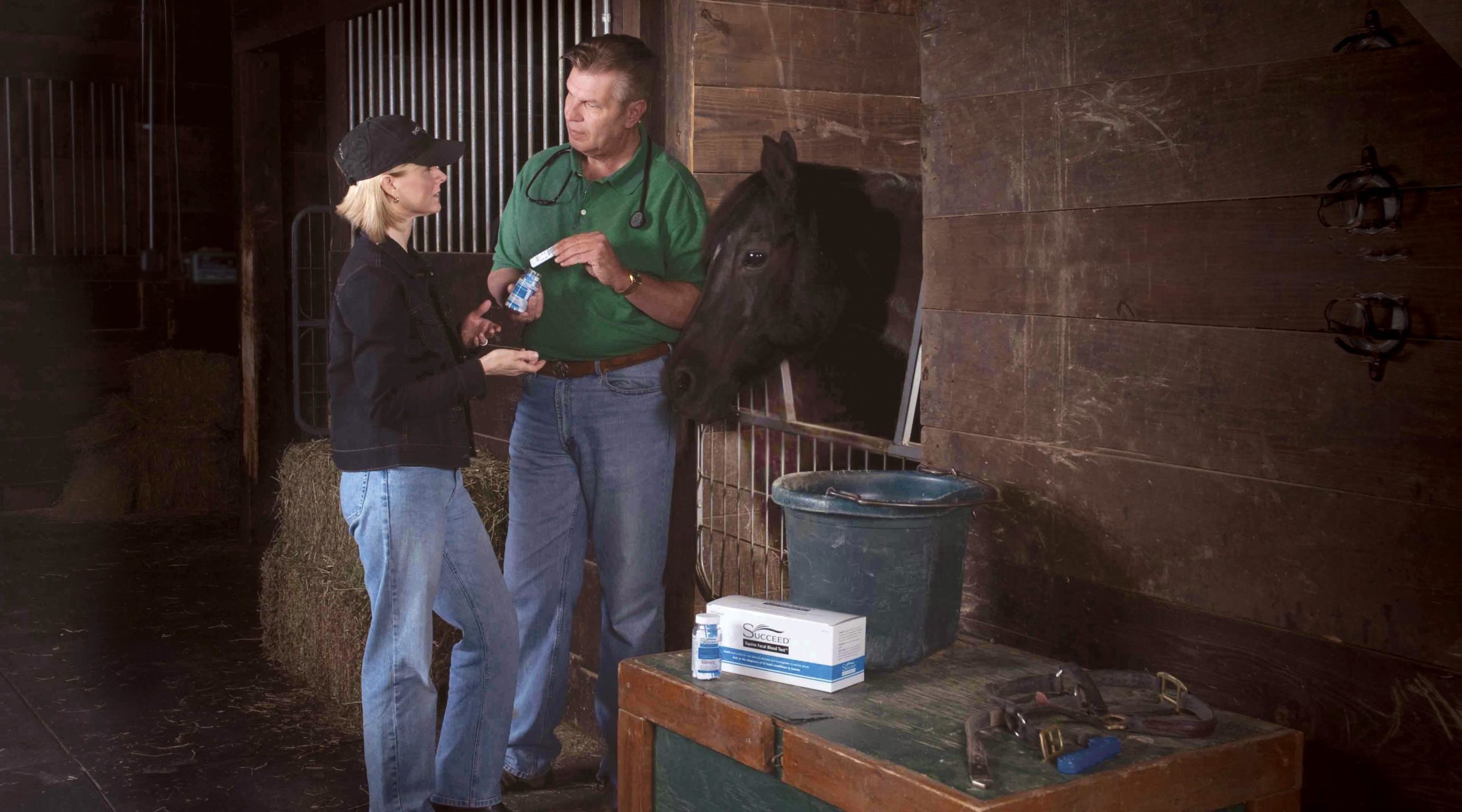The SUCCEED Equine Fecal Blood Test (FBT) is a rapid field test that supports your vet’s diagnosis of digestive tract conditions in horses. A research team at the University of Glasgow vet school is using and evaluating the FBT. The team is led by noted researcher and veterinarian Professor Derek Knottenbelt. In this video, Professor Knottenbelt shares the value he sees in vets using the FBT as part of the diagnostic process, especially since little other information is currently available about the horse’s hindgut.

Watch the Video on Equine GI Diagnostics
Read Knottenbelt’s Message on Equine GI Diagnostics
The following is a lightly edited version of the video transcript. When making a diagnosis, vets utilize the parameters that we can look at. We can only look at the food that goes in, the behavior of the horse, the clinical signs of the horse, and then the food that comes out. So, the reality is, how can we use that to make a diagnosis?
What Vets Learn Using the FBT
To help with this, a fecal occult blood test has been developed, the SUCCEED Equine Fecal Blood Test. And we have been very, very strict here in investigating its relevance. The test is crude. It’s a very non-specific, but very sensitive, test. It detects fecal hemoglobin, which indicates bleeding, and fecal albumin, which indicates leakage of protein into the intestinal content. Now, everybody says, “well what does it mean if those tests are positive?” It means that there’s blood. It’s very simple. It means that there’s bleeding and that there’s leakage of protein. But of course, now you say, well what does that mean in clinical terms? Can we treat that? At the moment, we can’t. Using the SUCCEED FBT is rather similar to putting a thermometer in the bottom of a horse. Where we vets say, “it’s got a temperature.” And we say, “well it’s got a temperature of forty degrees celsius, that’s 106 fahrenheit.” And we say, “well that must mean it needs antibiotic.” That’s a giant leap of faith. So we use this stethoscope and we use the thermometer every day of our lives. And we use that as a guide to the fact that we have to investigate something else. And then it’s a question of how we investigate that something else.So if we find a fecal occult blood test from the SUCCEED FBT as being positive, we say, “this case deserves attention. This case deserves investigation. This case deserves understanding of the potential pathology.”
Why Early Detection is Critical for the Horse
With any disease, of course, the early detection of symptoms and early detection of pathology is fundamental. Obviously, I think it’s a no brainer when the earlier you detect something, categorically, and the earlier you can focus the appropriate treatment, the better the outcome is likely to be. And that does not matter whether you’re dealing with an intestinal tumor, for example. Or an intestinal ulceration, or intestinal infiltrative disease. Or even parasites. The earlier you deal with them the less likely there is to be any significant long term effect. If you are a horse owner interested in learning more about the SUCCEED FBT, visit succeedfbt.com. Or, talk to your veterinarian about getting your horses tested. Veterinarians may learn more at succeed-vet.com.Watch More Videos in this Series
- Knottenbelt Discusses Large Colon Pathology in Horses
- Researcher Says Too Much Emphasis on the Horse’s Stomach




